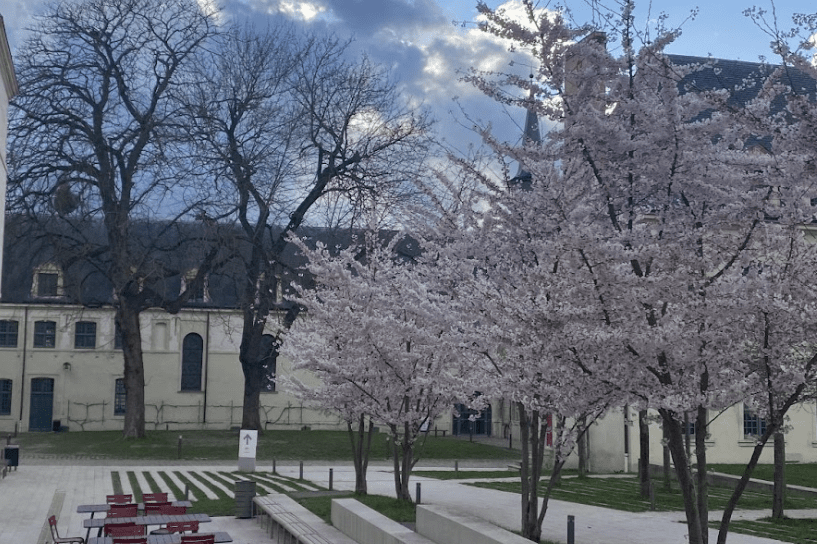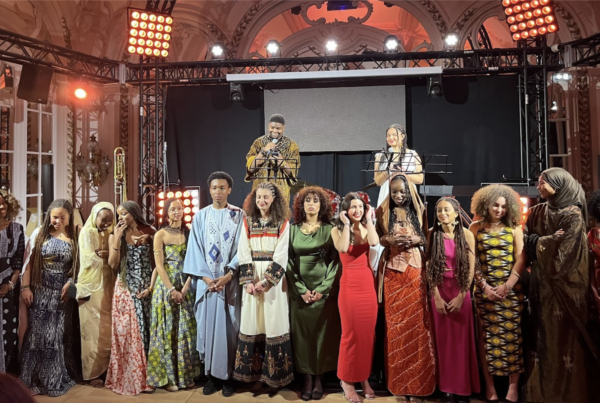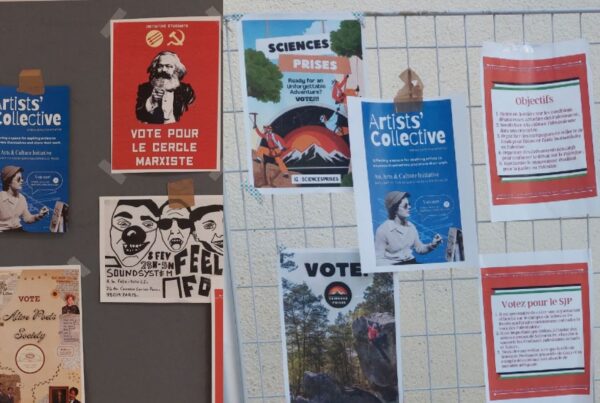By Paula Rincón Muñiz and Rysha Sultania
In order to better understand the process of applying for universities in our 3As, we interviewed two SciencesPo students, Sofia and Marysia, who just went through this confusing process and have some super useful information for us 1As!
Sofia is currently a 2A majoring in Political Humanities from Argentina who will be attending Northwestern University in Evanston, Illinois next year. This was her first choice. Marysia is a Polish 2A majoring in Politics & Government, who will be attending University of Philippines Diliman for her Hybrid 3A, along with an internship in the education sector. This was also her first choice.
During the first semester of their 2A students have to complete an application that will determine the university in which they will spend their 3A. Decisions are carried out by a committee at Sciences Po and are mainly based on the student’s grade average from the first and second semesters and from the major courses during the third semester. Students might be asked as well to submit CVs and a motivation letter for some universities. When asking the students we interviewed how this process works, they gave us a brief explanation of the main steps to follow:
The main task is creating a university list. For this, it is needed to do research on the many universities that have partnerships with Sciences Po, taking into account your major, as some institutions just take students from one of the three majors. The most competitive universities, like Ivy Leagues and OxBridge, have a requirement of an average of 14.75, and there can just be one on your list as they must be first choices. During the third semester, students have the possibility to book appointments with a regional advisor that can help them estimate what universities they have possibilities in depending on their average.
In the case of a hybrid year, your 3A will consist of a first semester in a partner university and a second semester doing an internship. Sciences Po does not guarantee you an internship, so it is important to bear in mind that you will need to research one and go through application processes on your own.
Detailed Q&A’s
What university will you be attending during your 3A? When selecting your 6 choices, what factors did you prioritize ?
- Sofia: I will be attending Northwestern University in Chicago, and I’ve primarily chosen it because of the academics. As a Political Humanities student, I love the professional outlook the university has for humanities, and I think I will get a very holistic education because the classes seem very interesting and research oriented, so I am really excited about taking them as a Political Humanities student. Although it wasn’t the main reason for putting Northwestern as my first choice, I also like the university’s location, as it is close to Chicago but it’s not in the city. I didn’t really want to go to a huge city but I am glad that I can have one close to me. For example, my second choice was Notre Dame University, which is not located in a very big city. In my case, I was sure that I wanted to go to the US because I studied in an American highschool but never lived there, so I just thought this would be the perfect chance to do it.
- Marysia: I will be attending University of Philippines, Diliman. I’ve chosen it mostly because, as I am doing a hybrid year, I was more willing to take risks and go to a more unknown destination to me that I wouldn’t go to if I didn’t have the opportunity of doing an exchange semester there. I’ve never been to Southeast Asia and I would love to learn more about its cuisine. Moreover, I aspire to be a lawyer in the future, and one of my goals is to learn about education systems around the world and access to education in general. Asian education systems are completely unknown to me and I think it would be very interesting to expand my knowledge from just European and North American systems. I am honestly terrified about going and the cultural shock that I will experience but at the same time I am really looking forward to it.
What will you be studying during your 3rd year?
- Sofia: I think that my preferred field of study is international law but I love that Northwestern is so interdisciplinary, because it will allow me to take courses in philosophy. I would like to learn more about its links with politics and law and I am also looking forward to taking some Econ classes, because I haven’t had any since my 1A. The good thing about Northwestern is that you can take so many classes because of the quarter system.
What advice would you have given to yourself one year ago?
- Sofia: I think the most important thing is being honest with yourself and coming into terms with your average. In my first semester, I had a very bad grade in French and that brought down my average a lot but in the end, it made me realize that it is just a number and that you can’t really change it. Even if you don’t go to the university you’ve dreamed of, it is just one year. It is also important to remember that for anglophone countries you must take the TOEFL before applying, so I recommend doing that in advance. If I could change anything, I would have liked to start researching universities a bit earlier, because I started in November. I also took very long to decide my fourth and fifth choice, but I don’t really regret that because I feel that the most important thing is to be sure that you’ll be happy with any of your choices.
- Marysia: I think it’s key to be sure that you like absolutely everyone of your university choices. I also had issues to justify absences and I really don’t recommend having a Default as it can close a lot of doors and get you rejected from your top choices.
How easy/difficult did you find the process of applying?
- Sofia: I think that compared to the process of applying for undergrad programs, this was easier even though it was still stressful, especially the week that we were getting the results.
- Marysia: It wasn’t particularly difficult but I think it is quite unfair, I understand that it is impossible for Sciences Po to have an application process like the one we went through for our undergraduate degree, but I think it really has an impact on the student’s motivation to participate in extracurriculars or have their own projects, especially regarding the ones who were involved in a lot of humanitarian work before university. This is truly annoying to me because extracurricular activities played a very important role in our application to get into SciencesPo, but also because we are pursuing a social sciences degree and we need these kinds of experiences outside of school to create a strong academic profile. I also chose the internship because I feel that it can help me bridge the gap that the countless hours of classes we have at SciencesPo has created in terms of my own engagement and professional development.
Other posts that may interest you:
- The Trouble with ‘Ecocide’
- Carbon dioxide removal – hit or miss?
- Local Victories for Turkish Opposition — A Sign of Hope?
- Are France and Japan a Mismatch Made in Heaven?
- A Reflection on Dark Tourism
Discover more from The Sundial Press
Subscribe to get the latest posts sent to your email.





